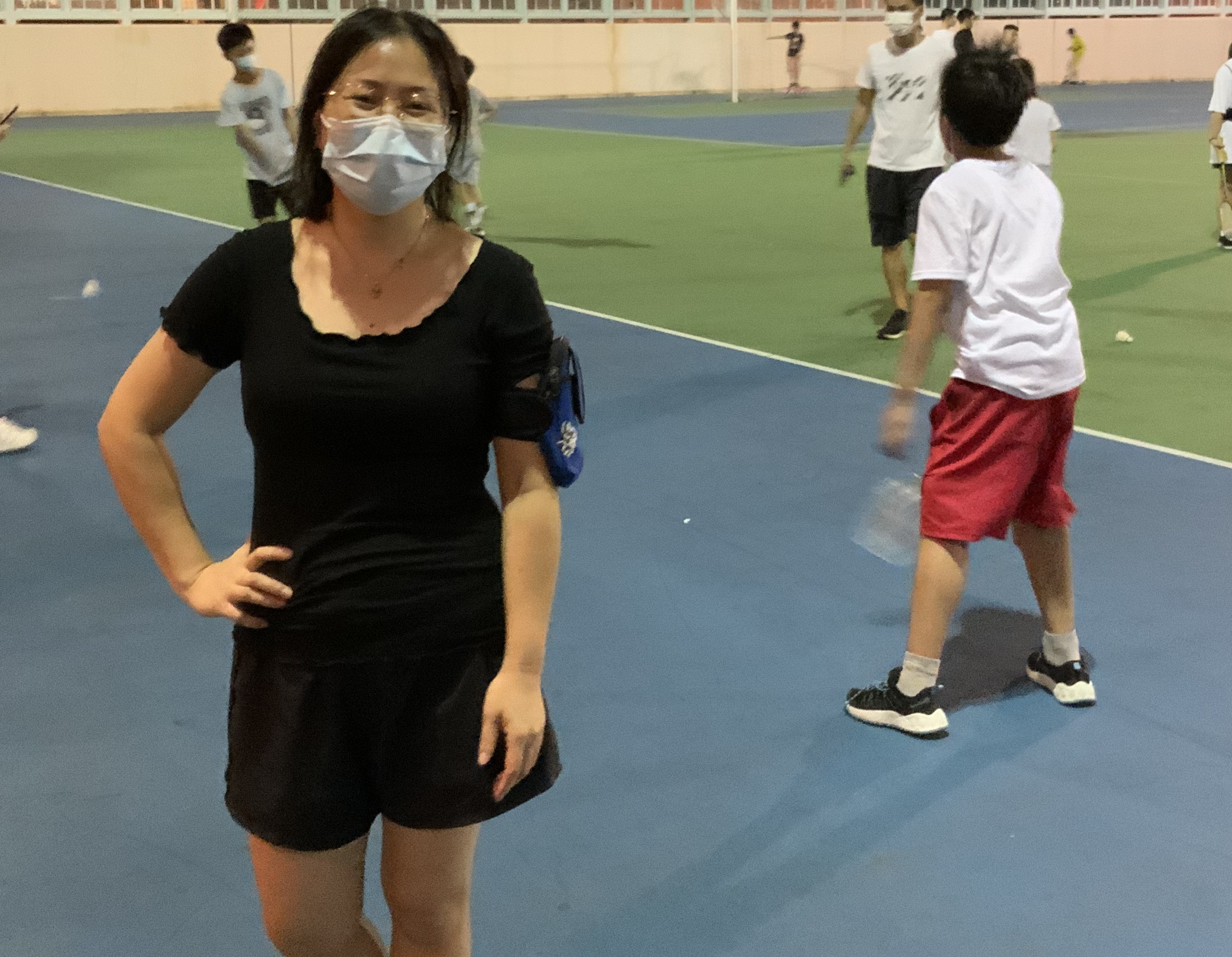Rachel Li Liang-yu, 24, was diagnosed with bipolar disorder 12 years ago. It is a mental disorder associated with extreme mood swings, ranging from depressive lows to manic highs.
She said her emotions are more unpredictable than before due to COVID-19, and her mood swings are the worst during lockdowns.
“It is because the clinic where I used to meet my psychiatrist has been closed for a while due to the lockdown in Hebei, China,” Li said.

Dr. Adrian Low, the president of the Hong Kong Association of Psychology, said it is common for people to feel stressed due to the massive amount of information during the pandemic.

“For those who suffered from mental health issues before, they are more easily triggered,” Low said. “For the ordinary public, they may face depression easier than before as well.”
According to the World Health Organisation’s research in 2022, the pandemic has triggered an increase in the prevalence of anxiety and depression worldwide by 25%.
Parents’ anxiety levels have also been elevated. Cheng Lihua, a mother of two primary school children in Hong Kong, said she feels anxious and depressed due to the pandemic.

“As a parent, it is normal to be worried,” said Cheng, “especially when there is so much negative information on television, WeChat groups and other social media.”
The depression rate of mothers increased from 19% before the pandemic to 35% in July 2020, while the anxiety rate increased from 18% to 31%, according to research by the Department of Psychology, University of Calgary.
This research suggested that the mental states of parents taking responsibility for their children’s academics and daily lives at the same time are severely compromised.
Cheng said when her children leave home for school, she often worries about the campus hygiene and is scared that her kids would be infected on campus.
Even when they are having online lessons, she is also anxious about whether kids can concentrate in class and understand the contents.
People receiving more accurate information regarding Covid will decrease the likelihood of depression as their mental development and resources for the pandemic is more in place, according to research by the School of Public Health at the Southern Medical University of China.
Meanwhile, the research also found out that receiving information that contradicts their existing knowledge concerning Covid can increase the likelihood of anxiety, especially for people who possess a relatively low medical literacy as it is challenging for them to identify misinformation,
Li said she felt stressed more often and thought it could be related to the news.
“My psychiatrist told me to try to stop watching stressful news, but it is everywhere on my social media, even my friends’ topics of conversation when we are hanging out,” Li said.
She also said there is a lot of misinformation circulating on social media, but it is hard to distinguish at first glance.
“When it’s hard for me to tell which information is true and which is not, I would panic as some of the content is terrifying,” she said. Therefore, it makes it hard to control her emotions.
It is fine to stay updated on the pandemic information, but people are often “over-consuming”, said Dr Low.
He said looking up the pandemic information once or twice per day is enough and he suggested reading or watching objective and factual news instead of commentary.
“When you notice that your emotions are getting out of control, stop reading and turn your phone off,” Dr Low said. “Negativity can surface quickly if people read information that is contradictory to their beliefs.”
According to Beyond Blue, an Australian non-governmental organisation that works with mental health issues, loneliness is another significant factor that makes people feel depressed or anxious.
Cheng said her children were having a hard time concentrating and losing their temper quickly after staying at home for a month, meanwhile not being able to meet their friends.
“Children this age need to spend time outdoors and interact with their peers,” said Cheng. “But it could be hard when unstoppable waves of the pandemic hit the city.”
She said the anti-epidemic policy in Hong Kong stressed her out, though she said it helps protect the vulnerable, such as children and the elderly.
“On one hand, I am stressed because of the restriction on gatherings that hinder my children’s opportunities to meet their friends,” Cheng said. “On the other hand, I feel like this policy has protected us from the virus. Although the outbreak has worsened recently, at least most of us are vaccinated now.”
Dr Low said the best way to fight depression during the pandemic is to maintain contact with peers and stay positive by doing simple exercises.
“Physical exercises are also important as exercising releases endorphins, which elevates people’s moods,” said Dr Low. “Even if you are confined in a small place, it is still necessary to exercise. Following online tutorial videos at home is great.”
“Parents can also search for some exercises to do with their children to relieve their stress together,” Low added.
《The Young Reporter》
The Young Reporter (TYR) started as a newspaper in 1969. Today, it is published across multiple media platforms and updated constantly to bring the latest news and analyses to its readers.

What can dreams tell us about our physical and mental health?

Blind saxophonist in China’s national disabled performing troupe speaks on success and overcoming challenges




Comments